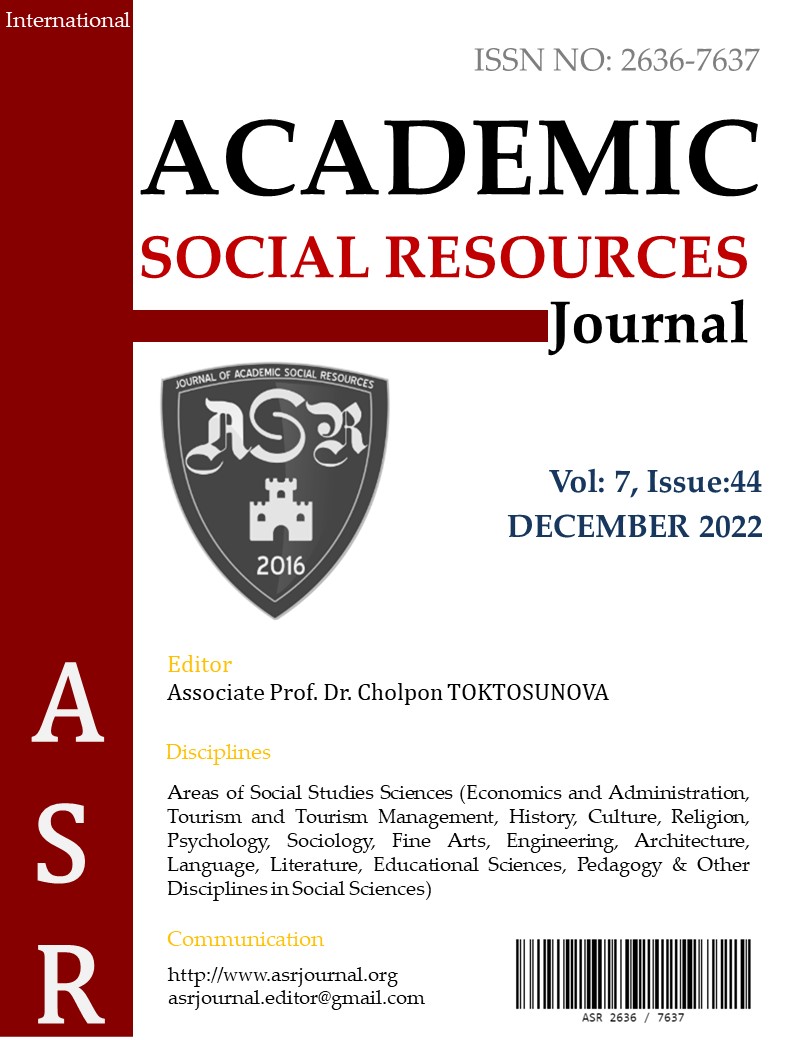Author :
Abstract
Kent, kentleşme ve kentlileşme toplumsal, kültürel ve politik olarak inşa edilen sosyolojik olgulardır. Kırsal alandan kente olan yoğun göç dalgası Türkiye özelinde de 1940’lı yılların sonlarından itibaren görünür kılınmıştır. Kentin kırsal alandan tamamiyle farklı yapılanması kente dair söylenecek sözlerin ve yapılacak sosyal bilim çalışmaların da alanını genişletmiş ve zamanla pek çok araştırmaya zemin hazırlamıştır. Bu araştırmaların 1970’lerle birlikte yönü daha farklı bir bağlamsallıkta kendisini göstermeye başlamıştır. Mekânın toplumsallığı ve mekâna dair bu yeni yönelim yer’in sosyal ilişki ağlarıyla kurulma dinamiklerini temel alan olguyla var olmaya başlamış ve sosyoloji disiplini içerisinde de mekânın akışkan doğası üzerine sorgulamalar akademik alanda yer edinmiştir. Mekânsallığın ivme kazanması ve gündemde etkin kılınması zamanla içerisinde sınıfsal ve toplumsal cinsiyet olgularıyla birlikte geniş bir çerçeveden konuya yaklaşmayı elzem hale getirmiştir. Mekânda yer ediniş, konumlandırma, kadın-erkek cinsiyetleri için taşıdığı anlamsallık, kentleşme ile birlikte yaşanılan evrimselliğin izdüşümlerini yorumlamak açısından ise oldukça önem taşımaktadır. Çünkü mekânsallığın cinsiyetçi ve gelenekçi yapılanması kadınlara ve erkeklere farklı rol ve örüntülerle karşısına çıkmaktadır. Bu çalışma mekân ve toplumsal cinsiyet arasındaki ilişkiye toplumsal cinsiyet eşitliği ve hak temelli bir perspektifle yaklaşmayı hedeflemektedir. Bu amacı gerçekleştirmek adına var olan erkek egemen yapı ve kurumsal mekanizmalar nedeniyle özel alanı ve kamusal alanı düalist bir şekle büründüren toplumsal gerçeklik sosyolojik olgular nezdinde yorumlanacaktır.
Keywords
Abstract
Urban, urbanization and urbanization are sociological phenomena that are socially, culturally and politically constructed. The intense wave of migration from rural to urban areas has been made visible in Turkey in particular since the late 1940s. The completely different structuring of the city from the rural area has expanded the scope of the words to be said about the city and the social science studies to be done, and has prepared the ground for many researches over time. With the 1970s, the direction of these studies began to show itself in a different context. This new orientation towards the sociality of the space and space has begun to exist with the phenomenon based on the dynamics of the place's establishment with social relations networks, and inquiries on the fluid nature of space within the discipline of sociology have taken place in the academic field. The acceleration of spatiality and making it active on the agenda have made it essential to approach the subject from a broad framework along with class and gender phenomena over time. The place in the space, its positioning, its semantic meaning for male and female genders are very important in terms of interpreting the projections of evolutionary experience with urbanization. Because the sexist and traditional structuring of spatiality confronts women and men with different roles and patterns. This study aims to approach the relationship between space and gender with a gender equality and rights-based perspective. Due to the male-dominated structure and institutional mechanisms that exist in order to realize this goal, the social reality that transforms the private and public spaces into a dualist form will be interpreted in terms of sociological facts.





